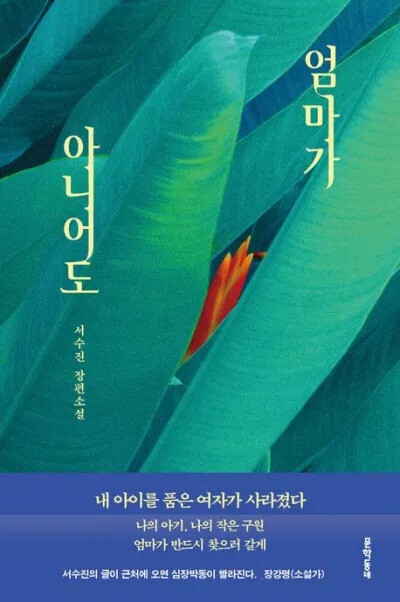
SEOUL, South Korea – In a society where the traditional "normal family" ideal often dictates aspirations, a new novel by acclaimed author Seo Su-jin peels back the layers of a complex and ethically fraught issue: commercial surrogacy. Her latest work, Even If Not a Mother, delves into the uncomfortable truths faced by those who seek children through such means, often becoming both victims of societal pressures and unwitting participants in a system of exploitation.
The novel centers on In-woo, a woman grappling with the profound grief of infertility and a hysterectomy. Lured by the desperate hope of having a child, she turns to a surrogacy broker, describing the proposition as "a shock akin to being offered drugs or firearms." Despite her initial reservations, In-woo succumbs to the "temptation" of a surrogate pregnancy, choosing to overlook the inherent commodification of human life—and even an infant—that underpins the transaction.
Seo Su-jin, a recipient of the Hankyoreh Literary Award and the Young Writers' Award, masterfully navigates the narrative through In-woo's journey to Thailand. Her quest begins after the surrogate mother, Cha-non, suddenly loses contact. In Thailand, In-woo is forced to confront the harsh realities of her choices. The power dynamic inherent in monetary transactions is starkly illustrated by Cha-non's blunt refusal to be exploited, a stance that paradoxically leads In-woo to mistakenly believe she is engaged in a proper contractual relationship.
The novel is set against the backdrop of real-life scandals that rocked the world of international surrogacy in 2014. These include the notorious case of an Australian couple who abandoned a disabled infant born via surrogacy in Thailand, and the shocking discovery of a Japanese millionaire who had fathered over a dozen children through multiple surrogate mothers in the same country. These incidents, which spurred Thailand to outlaw commercial surrogacy in 2015, serve as a potent reminder of the ethical quagmire surrounding the practice. In-woo's frantic search for Cha-non is tinged with a self-serving desire to absolve herself, to confirm that she isn't "the worst."
Interwoven with In-woo's story is that of a gay couple, Yo-han and Jon, also clients of surrogacy services. Seo, who resides in Australia, began writing this book four years ago after hearing the story of a gay Korean expatriate who had pursued surrogacy. Through meticulous research, she illuminates the dual nature of those who seek children through surrogacy: they are often casualties of the "normal family" myth, yet simultaneously participants in a system of structural exploitation. Even If Not a Mother forces readers to confront the uncomfortable questions about what money can buy, and at what human cost.
Surrogate Mother Disappears: A Glimpse into the Human Cost of Commercial Surrogacy
SEOUL, South Korea – A new novel by acclaimed author Seo Su-jin, Even if Not a Mother (엄마가 아니어도), plunges into the complex and often painful realities of commercial surrogacy, exposing the hidden human costs behind the desire for a child. The book, published by Munhakdongne, confronts the ethical dilemmas of a world where even the most profound human connections can be bought and sold.
The narrative centers on In-woo, a woman devastated by her inability to conceive, who turns to surrogacy after years of failed attempts and a subsequent hysterectomy. Initially viewing the process as a "temptation" akin to illicit dealings, In-woo eventually succumbs to the allure of having a child, choosing to overlook the inherent dehumanization of treating another human being as a means to an end. The story truly begins when In-woo travels to Thailand in search of the surrogate, Cha-non, who has suddenly ceased contact, forcing In-woo to confront uncomfortable truths about her choices.
Seo Su-jin, known for her sharp observations and compelling storytelling, masterfully portrays the power dynamics inherent in commercial surrogacy. The novel highlights how money establishes a clear hierarchy, leading In-woo to mistakenly perceive her relationship with Cha-non as a legitimate "contractual agreement" even when Cha-non asserts, "Do not exploit me."
The novel draws heavily on real-life scandals that rocked the international surrogacy industry in 2014, serving as a stark reminder of the ethical quagmires that can arise. One such case involved an Australian couple accused of abandoning a child with Down syndrome born to their Thai surrogate, Pattharamon Janbua, taking only the healthy twin. This tragic incident sparked global outrage and highlighted the vulnerability of surrogate mothers and the children they carry.
Another high-profile case from the same year involved Mitsutoki Shigeta, a wealthy Japanese national, who was found to have fathered at least 13 children with multiple Thai surrogate mothers. This "baby factory" scandal further fueled concerns about human trafficking and exploitation within the unregulated commercial surrogacy market.
These controversies ultimately led to significant legislative changes in Thailand. In 2015, in direct response to these incidents, Thailand enacted the Protection of Children Born from Assisted Reproductive Technologies Act, effectively outlawing commercial surrogacy for foreign couples and imposing stringent regulations on domestic arrangements. The novel is set against this backdrop, following In-woo's desperate efforts to locate Cha-non in a rapidly shifting legal landscape. Her frantic search reveals a deeper, selfish desire to alleviate her own guilt and confirm that her actions were "not the worst."
The author, who resides in Australia, began writing this book four years ago after hearing a gay Korean expatriate's story of surrogacy. This inspiration led to meticulous research, allowing Seo Su-jin to present a nuanced portrayal of commissioning parents like In-woo and a gay couple, Johan and John, whose parallel narratives are also woven into the story. The novel meticulously illustrates their dual roles as both victims of the "normal family" myth and, simultaneously, unwitting participants in a system of structural exploitation.
Even if Not a Mother serves as a poignant exploration of modern family structures, the ethical boundaries of reproductive technologies, and the profound impact of societal expectations on individual choices. It challenges readers to consider the true cost of creating a family when human lives become commodities in a complex global market.
[Copyright (c) Global Economic Times. All Rights Reserved.]




























